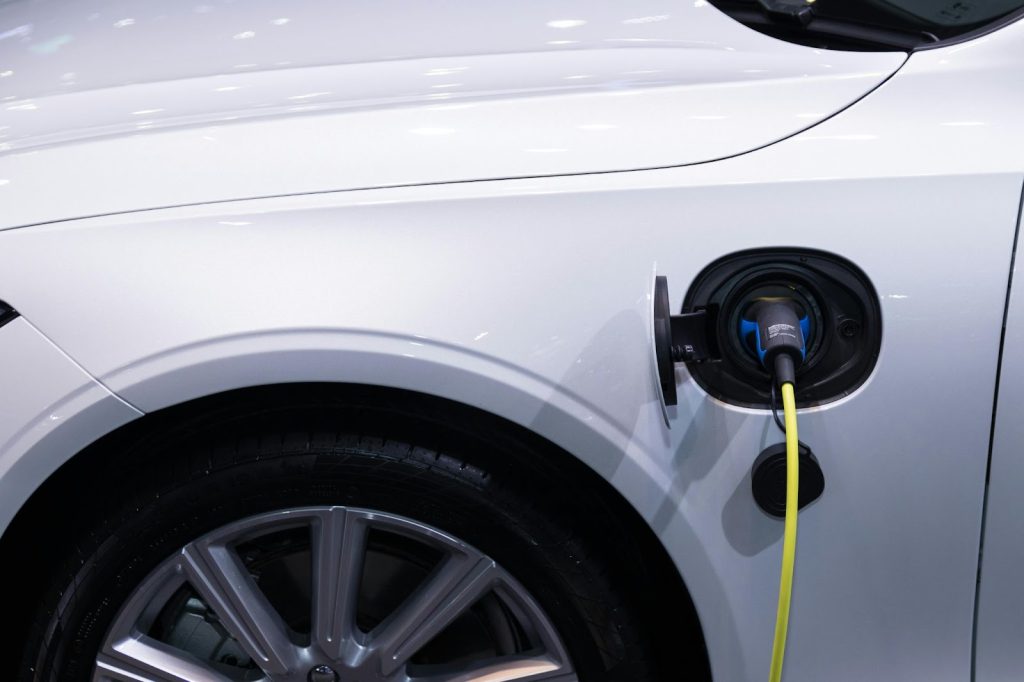The Impact of Technology on Automotive Industry Market Trends
Joe Montgomery February 17, 2025

The automotive industry has been a cornerstone of global economies for over a century. As technology continues to evolve at a rapid pace, its impact on the automotive sector becomes increasingly profound. This article explores various aspects of the automotive industry, the role technology plays, current market trends, future predictions, and the challenges and opportunities faced by this vibrant field.
Understanding the Automotive Industry
To comprehend the full impact of technology on market trends, it is essential to first grasp the structure and dynamics of the automotive industry. This industry encapsulates a wide range of manufacturers, suppliers, service providers, and regulatory bodies. The interplay between these entities not only shapes the production and distribution of vehicles but also influences consumer behavior and environmental policies.
Key Players in the Automotive Industry
The automotive sector is dominated by several key players globally. Major automobile manufacturers such as Toyota, Ford, General Motors, and Volkswagen lead the market, each playing a crucial role in vehicle innovation and production. These companies invest heavily in research and development to stay competitive, focusing on sustainability and advanced technologies that cater to the evolving demands of consumers.
In addition to manufacturers, suppliers of parts and components, such as Bosch and Denso, are integral to the industry’s operations. These suppliers not only provide essential components but also collaborate with manufacturers to enhance product quality and efficiency. Moreover, emerging companies specializing in electric vehicles, such as Tesla and Rivian, are reshaping traditional market dynamics. Their innovative approaches challenge established norms, pushing legacy automakers to accelerate their electric vehicle programs and rethink their strategies in a rapidly changing landscape.
Historical Overview of the Automotive Industry
The automotive industry has transformed dramatically since the invention of the automobile in the late nineteenth century. From the introduction of the assembly line by Henry Ford to the recent advancements in electric and self-driving cars, the industry has constantly adapted to technological changes. The shift from manual craftsmanship to mass production not only revolutionized manufacturing processes but also made automobiles more accessible to the general public, fundamentally altering transportation and society.
This evolution reflects broader societal shifts, including urbanization, increased mobility, and changing consumer preferences. The rise of the automobile coincided with the growth of suburbs and the expansion of road infrastructure, leading to a culture deeply intertwined with car ownership. Understanding this historical context is vital in appreciating the current trends influenced by technology. Today, as we face challenges such as climate change and urban congestion, the automotive industry is at a crossroads, where innovation is not just about performance but also about sustainability and social responsibility. The ongoing development of autonomous vehicles, ride-sharing platforms, and smart transportation systems signifies a new era that promises to redefine how we think about mobility and connectivity in our daily lives.

The Role of Technology in the Automotive Industry
Technology plays a multifaceted role in the automotive industry, with significant implications for design, safety, efficiency, and customer experience. Innovations are at the forefront of every new development and market strategy. From the integration of artificial intelligence to the use of big data analytics, the automotive sector is undergoing a transformation that is reshaping how vehicles are designed, manufactured, and utilized.
The Shift Toward Automation
Automation in manufacturing processes has significantly improved efficiency and reduced costs. Robotic manufacturing lines enhance precision, while software-driven inventory management ensures optimal resource allocation. This shift not only streamlines production but also allows for greater customization of vehicles, catering to the specific needs and preferences of consumers.
Moreover, automation extends beyond manufacturing into vehicle functioning. Advanced driver-assistance systems (ADAS) are paving the way for autonomous vehicles, enhancing safety and altering consumer perceptions of driving. These systems utilize a combination of sensors, cameras, and machine learning algorithms to assist drivers in various situations, from parking to collision avoidance. As these technologies continue to evolve, they promise to create a future where fully autonomous vehicles are a common sight on our roads.
The Emergence of Electric Vehicles
The rise of electric vehicles (EVs) represents one of the most significant technological advancements in the automotive industry. With environmental concerns gaining prominence, manufacturers are shifting toward sustainable energy solutions. This transition is not just about replacing traditional internal combustion engines with electric motors; it also involves rethinking the entire ecosystem surrounding transportation, including energy production and consumption.
Not only do EVs have the potential to reduce emissions, but advancements in battery technology have also improved their performance and range. Innovations such as solid-state batteries promise to enhance energy density and safety, while fast-charging technologies are making it possible for EVs to be charged in a fraction of the time it takes with conventional methods. This shift is supported by government incentives, increasing infrastructure for charging and changing consumer attitudes toward sustainable transportation.
As cities invest in smart grid technologies and renewable energy sources, the future of electric mobility looks increasingly promising, encouraging manufacturers to further invest in research and development to meet the growing demand for cleaner, more efficient vehicles.
Current Market Trends in the Automotive Industry
As technology permeates the automotive sector, several market trends have emerged that reflect these changes. Understanding these trends is crucial for stakeholders seeking to maintain competitiveness.
The Rise of Ride-Sharing Services
Ride-sharing services such as Uber and Lyft have fundamentally altered transportation dynamics. These platforms leverage technology to connect drivers and passengers, offering convenience and flexibility.
This trend has led to a decrease in personal vehicle ownership among certain demographics, particularly in urban areas, resulting in automakers reevaluating their strategies in vehicle production and marketing. Additionally, the rise of ride-sharing has prompted discussions about the future of urban planning and public transportation, as cities begin to adapt to a model where fewer people own cars but still require efficient and accessible transport options.
Moreover, this shift has encouraged traditional automakers to explore partnerships with ride-sharing companies, leading to innovations such as dedicated ride-sharing fleets and vehicles designed specifically for shared use. As a result, we are witnessing a transformation in vehicle design, with an emphasis on durability, functionality, and cost-effectiveness to cater to the needs of ride-sharing operators.
The Demand for Eco-Friendly Vehicles
Consumer demand is increasingly leaning toward eco-friendly vehicles, prompting manufacturers to prioritize sustainability in their offerings. The transition from traditional fuel sources to alternatives like electric, hydrogen, and hybrid vehicles is gaining traction.
Incorporating eco-friendly practices not only appeals to environmentally conscious consumers but also aligns with regulatory policies aimed at reducing carbon footprints across the automotive sector. Governments worldwide are implementing stricter emissions regulations and offering incentives for electric vehicle purchases, further driving the shift toward greener options.
Additionally, advancements in battery technology and charging infrastructure are making electric vehicles more accessible and practical for the average consumer. Innovations such as fast-charging stations and longer-lasting batteries are alleviating range anxiety, which has historically been a barrier to widespread adoption. As a result, we are witnessing a surge in electric vehicle models entering the market, catering to a diverse range of consumer preferences and needs, from compact cars to luxury SUVs.
The Future of the Automotive Industry
Looking ahead, the automotive industry is poised for further transformation driven by technological advancements. Identifying these predicted trends can offer insights into the direction of the market.
Predicted Technological Advancements
Future technological innovations are expected to focus on enhancing vehicle connectivity and automation. The integration of Internet of Things (IoT) solutions will likely enable seamless communication between vehicles and infrastructure. This connectivity will not only improve traffic management and safety but also enhance the overall driving experience by providing real-time data on road conditions, weather, and even nearby attractions.
Furthermore, advancements in artificial intelligence (AI) are anticipated to revolutionize fleet management and improve driver experiences through personalized interfaces that adapt to user preferences. AI algorithms will analyze driving habits and suggest optimal routes, fuel-saving techniques, and maintenance schedules, thus ensuring vehicles operate at peak efficiency. As AI continues to evolve, we may also see the development of smarter, more intuitive voice recognition systems that allow drivers to interact with their vehicles without distraction.
Potential Market Shifts and Opportunities
The automotive market is expected to witness a shift toward shared mobility solutions, particularly as urbanization continues. The potential for subscription-based models may also increase as consumers seek flexible ownership options. This shift could lead to a rise in partnerships between automotive manufacturers and tech companies, creating platforms that facilitate ride-sharing and on-demand vehicle access, thereby reducing the need for personal vehicle ownership in densely populated areas.
As markets evolve, companies that can innovate and adapt will find opportunities in new services and products that cater to changing consumer needs. For instance, the demand for EVs is projected to surge, prompting manufacturers to invest heavily in battery technology and charging infrastructure.
Additionally, sustainability will play a crucial role in shaping consumer preferences, leading to a greater emphasis on eco-friendly materials and manufacturing processes. This focus on sustainability not only addresses environmental concerns but also aligns with the growing consumer trend toward ethical consumption, creating a fertile ground for brands that prioritize green practices.
Challenges and Opportunities for the Automotive Industry
Though the automotive industry is rich with opportunities, numerous challenges lie ahead. Addressing these challenges will determine how effectively the industry can adapt to technological changes.
Adapting to Technological Changes
The rapid pace of technological innovation necessitates that automotive companies stay vigilant and adaptable. Companies must invest heavily in research and development to remain competitive while also addressing legacy systems that may hinder progress.
Moreover, workforce retraining will be vital as traditional manufacturing roles evolve to require more tech-savvy skills, ensuring that employees can navigate new tools and systems effectively. This shift toward automation and artificial intelligence in manufacturing processes not only enhances efficiency but also raises the bar for skill sets required in the workforce. As a result, partnerships with educational institutions and training programs are becoming increasingly important, allowing companies to cultivate a talent pool that is equipped to meet future demands.

Overcoming Market Volatility
The automotive sector is also perpetually exposed to market volatility due to fluctuating consumer preferences, economic downturns, and regulatory pressures. Navigating these challenges requires strategic planning and robust risk management practices.
Companies must remain agile, continuously analyzing market data to respond swiftly to changes, ensuring they do not lose competitive advantages. Additionally, the rise of EVs and sustainability concerns are reshaping consumer expectations, pushing automakers to innovate not just in technology but also in their environmental impact. This transition presents a dual challenge and opportunity: while companies must invest in sustainable practices and infrastructure, they can also capitalize on the growing demand for green technologies, positioning themselves as leaders in a rapidly evolving marketplace.
Conclusion
Technology is reshaping the automotive industry in significant ways, influencing market trends, consumer behaviors, and operational strategies. As we move forward, companies that embrace these technological advancements while addressing inherent challenges will thrive in the ever-evolving automotive landscape. The intersection of innovation and adaptability will determine the future success of this vital industry.
At Overfuel, we’re revolutionizing the way dealerships serve their customers online. We believe in a platform approach: a single, integrated solution that provides everything a dealership needs to sell more inventory while saving thousands in monthly fees. Discover how we can help you achieve your goals by visiting our website.